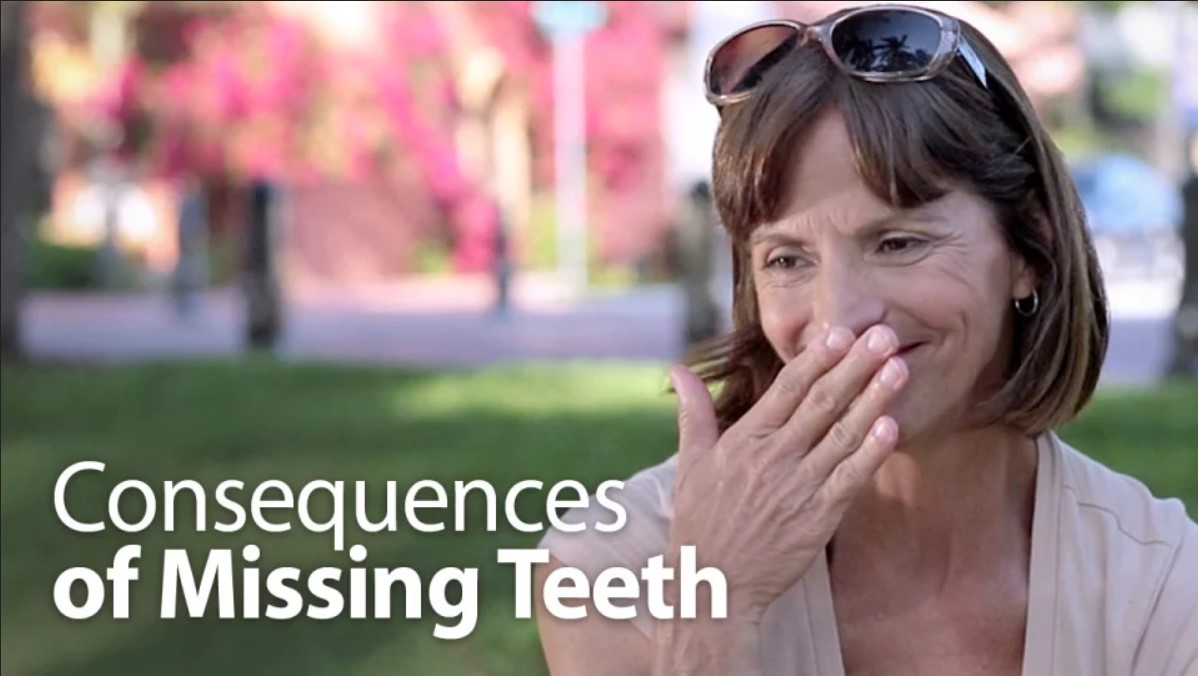Consequences of Missing Teeth

Missing teeth are not just cosmetic problems. Teeth perform various functions, most of which require them to work together.
Gaps between your teeth can negatively affect the overall wellness of your body and mouth.
There are several consequences of living without teeth. For instance, your smile will not look as attractive as it once did or you unconsciously put your hand in front of your mouth to hide your teeth or avoid smiling and talking whenever possible.
Missing teeth affect the functioning of the jaw, influence your daily diet and create malocclusion. They can also affect your self-confidence and the way you interact with others.
About 35 million people are missing teeth in one or both jaws.
There are several issues that can result from missing teeth. Some include;
Difficulties in eating
When you don’t have a fully functional set of teeth, eating can be difficult-sometimes next to impossible.
Gaps between your teeth make it possible for adjacent teeth to drift into the spaces that are unoccupied. The presence of opposing and neighboring teeth helps maintain the teeth’s position. When your teeth are not positioned properly, you experience bite alignment problems, jaws stress and irregular teeth wear.
In fact, nutritious foods, such as raw fruits and vegetables tend to be more difficult to bite or chew. That’s why poor dental health can lead to compromised nutrition.
Besides, when your teeth drift next to each other, cleaning out food debris becomes difficult. This encourages bacterial growth which eats away the tooth’s enamel causing tooth loss and gum disease.
Bone loss
This is another serious consequence that results from tooth loss.
You may not know it, but tooth loss leads to bone loss.
When you have missing teeth, the bone in your jaw that used to surround and support them starts to melt away. Tooth loss and bone loss are directly proportional. The longer your teeth are missing, the greater the bone loss.
Why is this important?
First, your teeth and the supporting bones help support your facial features.
When the lips and cheeks lose that support, your whole face begins to take on a collapsed, aged look. This is why people without teeth usually look old and sad.
The second reason why this is important is because the more your bone melts way, the harder it is for your dentist to successfully replace your missing teeth with dental implants. Substantial bone loss can increase costs and the extent of procedures needed
To avoid such issues, here is what you can do;
Whether you’re missing one tooth, several teeth or all of your teeth, dental implants can be used to fully restore your smile in the most natural way possible.
Dental implants are metal frames that act as a root replacement of a missing tooth. They are positioned in the jawbone beneath the gums to help support the crown.
The good thing about dental implants is that they mimic natural teeth. They are also the only method of tooth replacement that can stop bone loss.
This is because dental implants are usually made of titanium which has a unique ability to fuse with the jawbone to provide patients with a strong foundation for artificial teeth. Implants gives bridges and dentures stable foundation making them feel more natural especially when speaking or eating.
Research also shows that dental implants offer the best long-term solution for tooth replacement with a success rate of over 95%.
Make an appointment today to learn how dental implants can give you back your smile and enhance the quality of your life.
